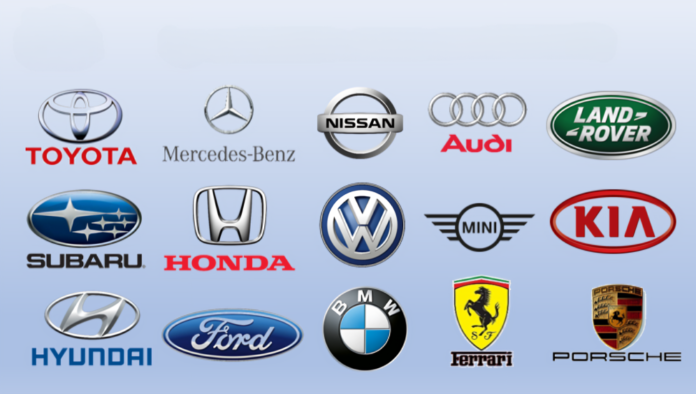Tesla, Toyota, BYD, Ferrari, and Xiaomi have emerged as part of the Top 15 Car Brands in the World, boasting a combined market capitalization exceeding $1.2 trillion. These automotive giants continue to dominate the global market, driven primarily by the rapid rise of electric vehicles (EVs). In 2023, global EV sales surged by 35% compared to the previous year, as reported by the International Energy Agency (IEA).
This remarkable growth was fueled by substantial investments from automakers, including those in the Top 15 Car Brands in the World, who revamped their production processes and embraced cutting-edge battery technologies.
The 15 most valuable auto companies are:
| CAR COMPANY | MARKET CAPITALIZATION |
| Tesla | $695.79 B |
| Toyota | $228.88 B |
| BYD | $117.09 B |
| Ferrari | $85.40 B |
| Xiaomi | $76.38 B |
| Porsche | $70.77 B |
| Mercedes-Benz | $67.70 B |
| General Motors | $53.80 B |
| BMW | $52.72 B |
| Volkswagen | $52.48 B |
| Honda | $49.49 B |
| Maruti Suzuki India | $47.78 B |
| Hyundai | $45.41 B |
| Tata Motors | $45.40 B |
| Ford | $42.61 B |
However, the road to success for the Top 15 Car Brands in the World has not been without obstacles. The COVID-19 pandemic saw auto dealers inflating prices due to a global semiconductor shortage. As the market started to stabilize, these companies faced new challenges—excess unsold inventory.
A McKinsey report revealed that nearly half of US EV buyers are unlikely to purchase another EV, sparking concerns across the industry. By early 2024, many automakers began reassessing their plans to achieve net-zero emissions amid these market shifts.
Cox Automotive reported that, throughout 2024, inventory levels frequently surpassed the standard 60-day supply. In response, automakers reduced prices, bringing vehicle costs down to the lowest they had been in two years. Despite this, early EV adopters are now seeing the value of their cars drop, with further depreciation expected.
Kelley Blue Book data from July 2024 indicated that the average price of an EV was $56,520, but consumer demand was highest for models priced under $40,000. Although federal tax credits of up to $7,500 helped ease some of the surplus, they weren’t enough to completely offset the inventory backlog.
As the market shifts toward more affordable EV options, competition from Chinese manufacturers is intensifying. Yet, this also presents new opportunities for global leaders like Tesla, which remains a key player in the evolving landscape. While consumer interest in EVs may be mixed, younger buyers are increasingly drawn to innovative, eco-friendly models that stand out with futuristic designs.
The much-anticipated Suzuki Every is set to launch in Pakistan, promising to transform the local automotive market with its innovative features and modern design. Excitement grew following the announcement of the discontinuation of the Suzuki Bolan, a staple for nearly four decades. This change marks a significant shift in Suzuki’s lineup as the Bolan makes way for the Suzuki Every.
The launch is unofficially scheduled for October 12, 2024, in Lahore. Sources suggest the Suzuki Every will be priced around Rs. 2.6 million, which is Rs. 660,000 more than the Bolan. Sneak peeks on social media have showcased its stunning design and features, heightening anticipation.


